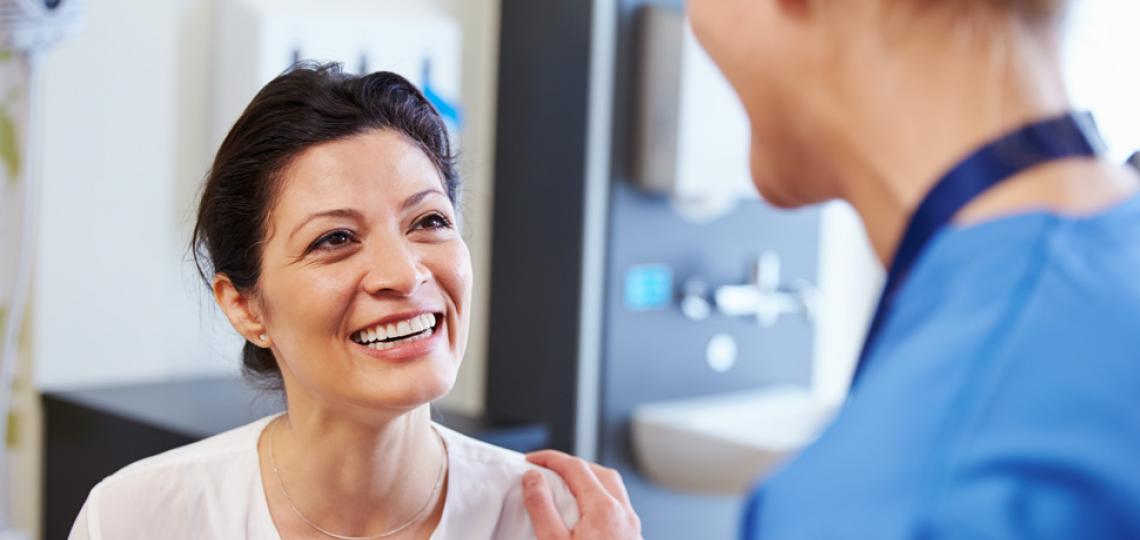
What causes breast cancer?
Defects (mutations) in genes that result in uncontrolled growth and spread of breast duct cells cause breast cancer to form. Mutations can occur spontaneously or from exposure to environmental toxins, x-rays or chemicals. Some mutations are hereditary and are passed from parents to children. The hormone estrogen is a very important contributor to the development of breast cancer by stimulating growth of cells containing mutations.
How can I reduce my risk of breast cancer?
Lifestyle changes can significantly reduce your risk of breast cancer and many other diseases. Exercising 3-4 times per week for 30-60 minutes can reduce your risk by minimizing obesity and reducing estrogen levels. Exercise may be more helpful in adolescent and young adult women. Low-calorie diets rich in fruits and vegetables, and minimal alcohol consumption (fewer than 3 drinks per week) are important. The vitamin folic acid (800 m/day) seems to reduce the excess breast cancer risk from excessive alcohol. Breast feeding if possible can help reduce risk from breast cancer as well.
Some women may benefit by taking drugs like tamoxifen or raloxifene. Use of these drugs should be discussed with a doctor experienced and trained in breast cancer prevention. Women with a significant family history of breast or ovarian cancer may want to consult with a genetic counselor or experienced physician about genetic testing (a blood test), prevention alternatives, and close monitoring by a physician.
How likely am I to have breast cancer?
An accurate estimation takes into account many factors and must be done by a physician or nurse experienced in this area. On average, a woman in this country has a 12 percent lifetime (age 0-85) risk of acquiring breast cancer. But a woman who has already reached age 50 and does not yet have breast cancer has only a five percent chance of developing it over the next 20 years.
Does our high fat diet cause breast cancer?
High fat diets do contribute to heart disease and colorectal cancer, but not to breast cancer. However, high calorie diets cause obesity, higher estrogen levels, and an increased risk of breast cancer.
What else increases breast cancer risk?
Starting menstrual periods younger than age 12, undergoing menopause at age 55 or greater, certain kinds of benign breast disease, estrogen replacement therapy after menopause, having no children or delaying the first pregnancy until after age 30, consuming alcohol (more than 2-3 drinks per week), family history of breast cancer, and sedentary lifestyle are important. There is no good evidence that birth control pills (except for prolonged use before first pregnancy), electromagnetic radiation, or pesticides cause breast cancer.
Does breast size, bra type or antiperspirant cause breast cancer?
There is no good scientific evidence to implicate any of these factors. Being tall or overweight (which can be associated with larger breasts) can increase a woman's risk because of higher estrogen levels in such women. American women, who are on average overweight, have much higher estrogen levels than Asian women who are on average, not overweight, and who have a much lower risk of breast cancer.
Does any aunt or distant relative with breast cancer increase my changes of breast cancer?
No. Affected first degree relatives (mother, daughter, or sister) do increase your risk; especially if they had breast cancer below age 50 or bilateral breast cancer. Only 5-10 percent of all cases of breast cancer are due to hereditary factors. More than 80 percent of women who get breast cancer have no family history.








